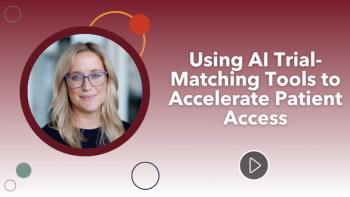
In this video interview, Adrianne Rivard, senior community development manager at myTomorrows, discusses how AI-powered pre-screening integrated into referral workflows can streamline eligibility checks and speed patient access to treatments.

In this video interview, Adrianne Rivard, senior community development manager at myTomorrows, discusses how AI-powered pre-screening integrated into referral workflows can streamline eligibility checks and speed patient access to treatments.
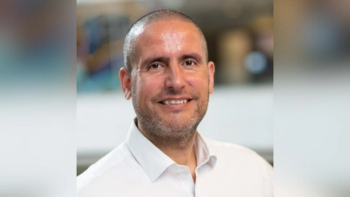
In this Q&A from the 2025 Veeva R&D and Quality Summit, Ibrahim Kamstrup-Akkaoui, vice president of data systems innovation at Novo Nordisk, discusses simplifying system use through the company’s DataNow program and taking a measured, stepwise approach to applying AI and automation across the clinical development lifecycle.

In this Q&A from the 2025 Veeva R&D and Quality Summit, Ibrahim Kamstrup-Akkaoui, vice president of data systems innovation at Novo Nordisk, discusses simplifying system use through the company’s DataNow program and taking a measured, stepwise approach to applying AI and automation across the clinical development lifecycle.

In this video interview, Adrianne Rivard, senior community development manager at myTomorrows, explains how AI can reduce the time physicians spend pre-screening patients for clinical trial eligibility.

In this video interview, Adrianne Rivard, senior community development manager at myTomorrows, explains how AI can reduce the time physicians spend pre-screening patients for clinical trial eligibility.
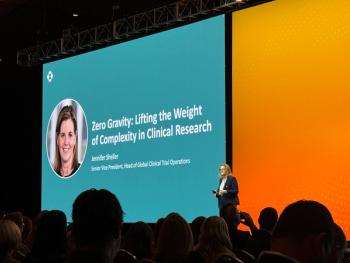
In the clinical opening keynote of Veeva’s R&D and Quality Summit, Jim Reilly of Veeva and Jennifer Sheller of Merck outlined how connected clinical platforms can cut costs, reduce inefficiencies, and improve site and patient experiences, with Merck’s “Zero Gravity” program demonstrating early operational gains.

In this video interview, Sunny Kumar, MD, partner at Informed Ventures, explains how startups often underestimate the need for scalable platforms that fit into pharma workflows, limiting adoption of otherwise promising point solutions.

In this video interview, Sunny Kumar, MD, partner at Informed Ventures, discusses how FDA guidance and investor expectations are shaping resilient trial designs that use adaptive methods, virtual controls, and decentralization to lower costs and accelerate patient access.

In this video interview, Sunny Kumar, MD, partner at Informed Ventures, explains how organizational complexity, regulatory caution, and cultural risk aversion slow innovation in clinical trials, while tools like generative AI may help reduce operational barriers.

In this video interview, Sunny Kumar, MD, partner at Informed Ventures, discusses how clinical operations leaders can close technology gaps in decentralized trials by provisioning devices and designing simple, intuitive tools to ensure equitable patient access.

The Phase III NIMBLE trial met its primary and key secondary endpoints, with cemdisiran monotherapy showing robust efficacy in generalized myasthenia gravis and the cemdi-poze combination achieving near-complete complement inhibition. Regeneron plans a 2026 US regulatory submission.

In this video interview, Sunny Kumar, MD, partner at Informed Ventures, explains how high upfront costs and limited proof of cost savings are slowing large-scale adoption of decentralized clinical trial models.
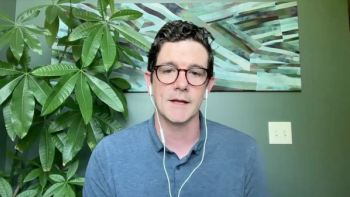
Craig Lipset, co-chair, Decentralized Trials & Research Alliance (DTRA), and Kyle McAllister, co-founder, CEO, Trially, discuss how research sites are navigating political funding pressures, adapting to NIH budget constraints, and leveraging new cost-containment strategies to sustain clinical research.

The FDA will now publish adverse event data from FAERS on a daily basis, marking a major step toward greater transparency in drug development.
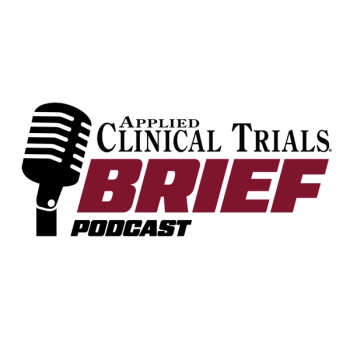
In this episode of the Applied Clinical Trials Brief, we recap our three most-viewed stories of the week—covering the Supreme Court’s decision to uphold NIH funding cuts tied to DEI, Phase II data showing oral VK2735 achieved over 12% weight loss, and Phase III results where Padcev plus Keytruda improved survival in muscle-invasive bladder cancer.
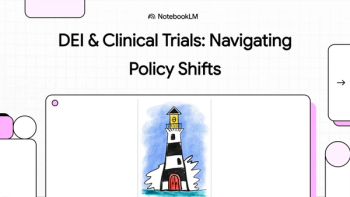
This explainer unpacks how recent US policy shifts are reshaping diversity, equity, and inclusion in clinical research, exploring the ripple effects on patients, sites, sponsors, and investigators.

The Supreme Court has ruled 5-4 to allow the Trump administration’s NIH funding cuts to continue, impacting more than 1,700 medical research grants in areas including heart disease, HIV/AIDS, Alzheimer’s disease, and mental health.

In this video interview, Caroline Potts, general manager of sites and patient services at Medical Research Network (MRN), explains why trial inclusivity requires shared responsibility across sponsors, CROs, sites, and advocacy groups.

A new exploratory study will evaluate the safety of Anktiva in patients with long COVID, with secondary and exploratory measures focused on immune cell activity and function.

The Denali trial confirmed non-inferiority of NCX 470 to latanoprost in lowering intraocular pressure, with consistent efficacy, favorable safety, and supportive results from the earlier Mont Blanc study.

In this video interview, Caroline Potts, general manager of sites and patient services at Medical Research Network (MRN), highlights how listening to site insights and adopting flexible models such as temporary community-based clinics, can reduce patient travel burdens, improve enrollment efficiency, and stretch trial budgets further.

In this episode of the Applied Clinical Trials Brief, we spotlight a recent video interview in which Jon Walsh, founder and chief scientific officer of Unlearn.AI, shared how digital twins can improve trial efficiency, enhance patient-centric designs, align with regulatory expectations, and accelerate access to new therapies.

In this episode of the Applied Clinical Trials Brief, we spotlight a recent video interview in which Jon Walsh, founder and chief scientific officer of Unlearn.AI, shared how digital twins can improve trial efficiency, enhance patient-centric designs, align with regulatory expectations, and accelerate access to new therapies.

An overview of how recent funding reductions are reshaping clinical trial operations, from site sustainability and patient recruitment to trial design and long-term strategy.

In this video interview, Caroline Potts, general manager of sites and patient services at Medical Research Network (MRN), outlines how rigid budgeting and limited sponsor-site dialog often block innovative patient-centric solutions, stressing the need for more collaborative approaches to enable community engagement and flexible trial delivery.

In this video interview, Caroline Potts, general manager of sites and patient services at Medical Research Network (MRN), explains why site-enabled approaches such as in-home visits and community-based outreach should be offered from the start of a trial to reduce recruitment delays, support patient needs, and improve trial diversity.

The first patient has been dosed in a global Phase II study assessing Hepzato in combination with trifluridine-tipiracil and bevacizumab for liver-dominant metastatic colorectal cancer, with primary results expected by mid-2028.

The Phase II VENTURE-Oral Dosing study of VK2735 met primary and secondary endpoints, with once-daily treatment leading to progressive weight reductions, high responder rates, and encouraging safety over 13 weeks.

In this video interview, Caroline Potts, general manager of sites and patient services at Medical Research Network (MRN), discusses the challenges of achieving true operational flexibility in clinical trials—highlighting how SOPs, staffing, and budget constraints often limit site adaptability and contribute to staff burnout.

The FDA has awarded Breakthrough Therapy Designation to izalontamab brengitecan, a potential first-in-class bispecific antibody-drug conjugate, for patients with EGFR-mutated advanced or metastatic non-small cell lung cancer who progressed after EGFR TKI and platinum chemotherapy, based on data from multiple clinical trials.